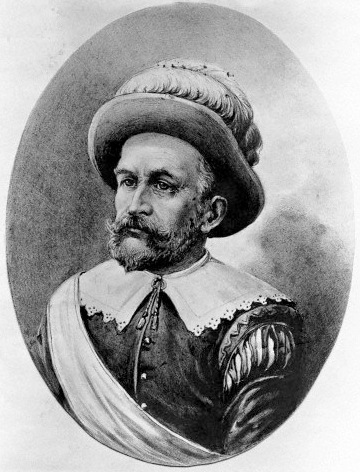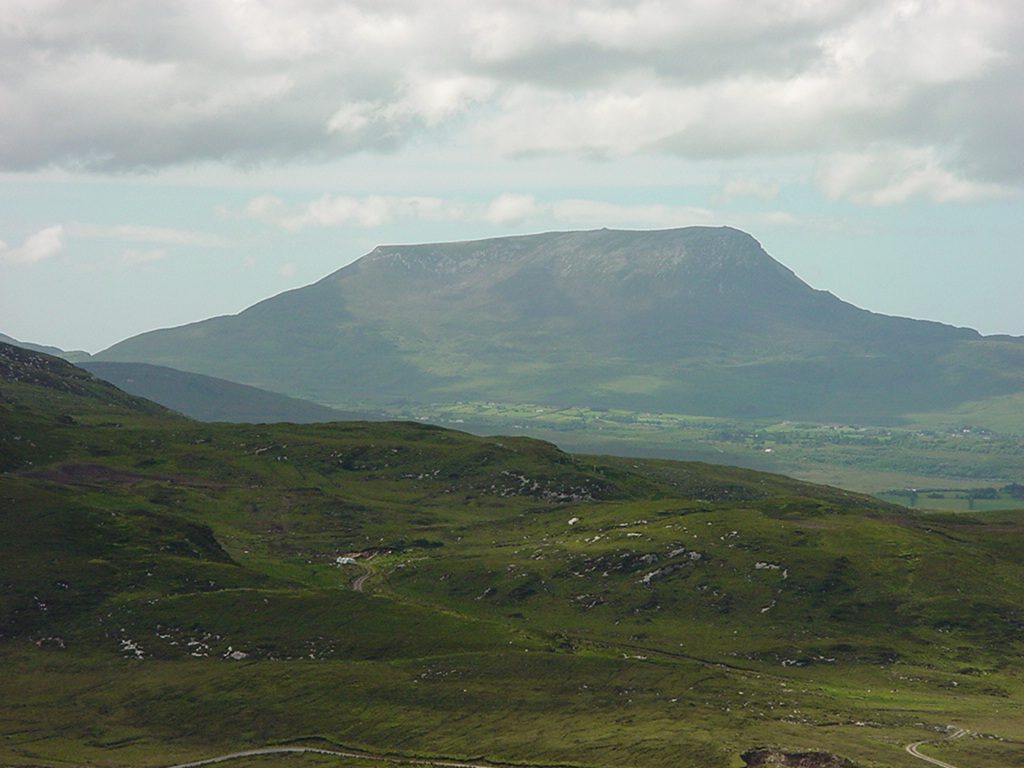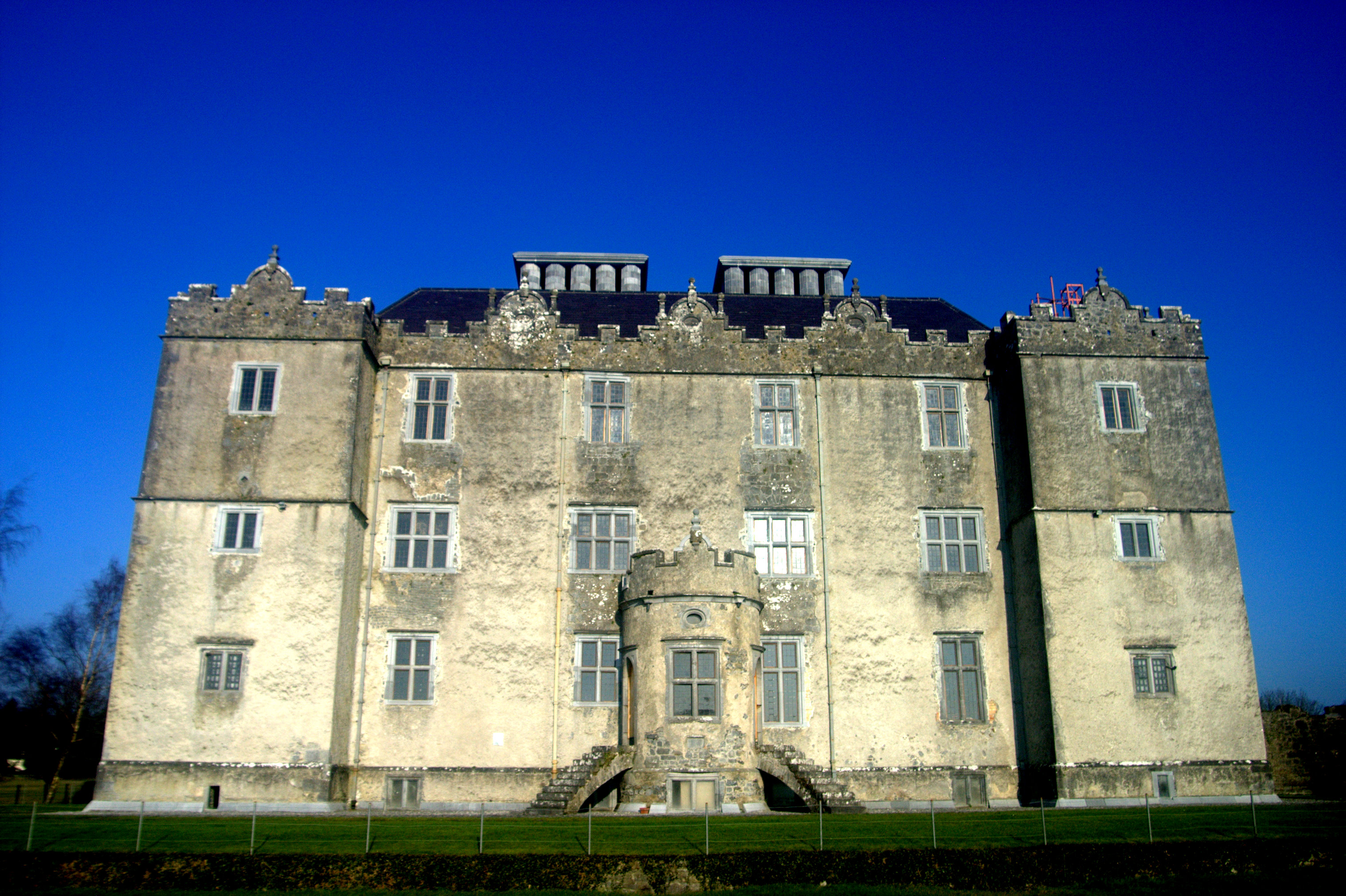|
Michael Corcoran
Michael Corcoran (September 21, 1827 – December 22, 1863) was an Irish-American general in the Union Army during the American Civil War and a close confidant of President Abraham Lincoln. As its colonel, he led the 69th New York Regiment to Washington, D.C., and was one of the first to serve in the defense of Washington by building Fort Corcoran. He then led the 69th into action at the First Battle of Bull Run. After promotion to brigadier general, he left the 69th and formed the ''Corcoran Legion'', consisting of at least five other New York regiments. Early life Corcoran was born in Carrowkeel, near Ballymote, County Sligo in Ireland, the only child of Thomas Corcoran, an officer in the British Army, and Mary (McDonagh) Corcoran. Through his mother, he claimed descent from Patrick Sarsfield, hero of the Williamite War in Ireland and a leader of the Wild Geese. In 1846, at the age of 18, he took an appointment to the Revenue Police, enforcing the laws and searching for ... [...More Info...] [...Related Items...] OR: [Wikipedia] [Google] [Baidu] |
County Sligo
County Sligo ( , gle, Contae Shligigh) is a county in Ireland. It is located in the Border Region and is part of the province of Connacht. Sligo is the administrative capital and largest town in the county. Sligo County Council is the local authority for the county. The population of the county was 65,535 at the 2016 census. It is noted for Benbulben Mountain, one of Ireland's most distinctive natural landmarks. History The county was officially formed in 1585 by Sir Henry Sidney, Lord Deputy of Ireland, but did not come into effect until the chaos of the Nine Years' War ended, in 1603. Its boundaries reflect the Ó Conchobhair Sligigh confederation of Lower Connacht ( ga, Íochtar Connacht) as it was at the time of the Elizabethan conquest. This confederation consisted of the tuatha, or territories, of Cairbre Drumcliabh, Tír Fhíacrach Múaidhe, Tír Ollíol, Luíghne, Corann and Cúl ó bhFionn. Under the system of surrender and regrant each tuath was subsequen ... [...More Info...] [...Related Items...] OR: [Wikipedia] [Google] [Baidu] |
Abraham Lincoln
Abraham Lincoln ( ; February 12, 1809 – April 15, 1865) was an American lawyer, politician, and statesman who served as the 16th president of the United States from 1861 until his assassination in 1865. Lincoln led the nation through the American Civil War and succeeded in preserving the Union, abolishing slavery, bolstering the federal government, and modernizing the U.S. economy. Lincoln was born into poverty in a log cabin in Kentucky and was raised on the frontier, primarily in Indiana. He was self-educated and became a lawyer, Whig Party leader, Illinois state legislator, and U.S. Congressman from Illinois. In 1849, he returned to his successful law practice in central Illinois. In 1854, he was angered by the Kansas–Nebraska Act, which opened the territories to slavery, and he re-entered politics. He soon became a leader of the new Republican Party. He reached a national audience in the 1858 Senate campaign debates against Stephen A. Douglas. ... [...More Info...] [...Related Items...] OR: [Wikipedia] [Google] [Baidu] |
Private (rank)
A private is a soldier, usually with the lowest rank in many armies. Soldiers with the rank of Private may be conscripts or they may be professional (career) soldiers. The term derives from the medieval term "private soldiers" (a term still used in the British Army), contrasting mercenary soldiers and denoting individuals who were either exclusively hired, conscripted, or mustered into service by a feudal nobleman commanding a battle group of an army. Asia Indonesia In Indonesia, this rank is referred to as '' Tamtama'' (specifically ''Prajurit'' which means soldier), which is the lowest rank in the Indonesian National Armed Forces and special Police Force. In the Indonesian Army, Indonesian Marine Corps, and Indonesian Air Force, "Private" has three levels, which are: Private (''Prajurit Dua''), Private First Class (''Prajurit Satu''), and Master Private (''Prajurit Kepala''). After this rank, the next promotion is to Corporal. File:prada pdh ad.png, Private (''Prajurit ... [...More Info...] [...Related Items...] OR: [Wikipedia] [Google] [Baidu] |
Manhattan
Manhattan (), known regionally as the City, is the most densely populated and geographically smallest of the five boroughs of New York City. The borough is also coextensive with New York County, one of the original counties of the U.S. state of New York. Located near the southern tip of New York State, Manhattan is based in the Eastern Time Zone and constitutes both the geographical and demographic center of the Northeast megalopolis and the urban core of the New York metropolitan area, the largest metropolitan area in the world by urban landmass. Over 58 million people live within 250 miles of Manhattan, which serves as New York City’s economic and administrative center, cultural identifier, and the city’s historical birthplace. Manhattan has been described as the cultural, financial, media, and entertainment capital of the world, is considered a safe haven for global real estate investors, and hosts the United Nations headquarters. New York City is the headquarters of ... [...More Info...] [...Related Items...] OR: [Wikipedia] [Google] [Baidu] |
Sligo Bay
Sligo Bay () is a natural ocean bay in County Sligo, Republic of Ireland. Geography Sligo Bay is opened between Aughris Head (South side) and Roskeeragh Point (North). The inner part of the bay is divided into three smaller bodies of water, hosting the estuary, estuaries of three rivers: Drumcliff, River Garavogue, Garavogue and Bonet. The river River Garavogue, Garavogue reaches the bay in its central part, named ''Sligo Harbour'', which is divided from the outer part of the bay by three small islands: Coney Island, County Sligo, Coney, Oyster and Maguins. On the southern branch of Sligo Bay also has its mouth the Ballisodare River, near the village of the same name. Landforms and islands The bay is characterised by the peninsulas jutting out into it, which create vast areas of sandy beach at low tide, along with the tidal islands which are only accessible at low tide. The notable landforms within the bay and its peninsulas are: *Maugherow Peninsula *Rosses Point Peninsula ... [...More Info...] [...Related Items...] OR: [Wikipedia] [Google] [Baidu] |
Ribbonmen
Ribbonism, whose supporters were usually called Ribbonmen, was a 19th-century popular movement of poor Catholics in Ireland. The movement was also known as Ribandism. The Ribbonmen were active against landlords and their agents, and opposed "Orangeism", the ideology of the Protestant Orange Order. History The Ribbon Society was principally an agrarian secret society, whose members consisted of rural Irish Catholics. The society was formed in response to the miserable conditions in which the vast majority of tenant farmers and rural workers lived in the early 19th century in Ireland. Its objective was to prevent landlords from changing or evicting their tenants. Ribbonmen also attacked tithe and process servers, and later evolved the policy of Tenants' Rights.H. B. C. Pollard, Secret Societies of Ireland, Their Rise and Progress, 2003, pp. 34–37 The existence of "ribandmen" was recorded as early as 1817. The name is derived from a green ribbon worn as a badge in a button-hole by ... [...More Info...] [...Related Items...] OR: [Wikipedia] [Google] [Baidu] |
County Donegal
County Donegal ( ; ga, Contae Dhún na nGall) is a county of Ireland in the province of Ulster and in the Northern and Western Region. It is named after the town of Donegal in the south of the county. It has also been known as County Tyrconnell (), after the historic territory of the same name, on which it was based. Donegal County Council is the local council and Lifford the county town. The population was 166,321 at the 2022 census. Name County Donegal is named after the town of Donegal () in the south of the county. It has also been known by the alternative name County Tyrconnell, Tirconnell or Tirconaill (, meaning 'Land of Conall'). The latter was its official name between 1922 and 1927. This is in reference to the kingdom of Tír Chonaill and the earldom that succeeded it, which the county was based on. History County Donegal was the home of the once-mighty Clann Dálaigh, whose best-known branch was the Clann Ó Domhnaill, better known in English as the O'Don ... [...More Info...] [...Related Items...] OR: [Wikipedia] [Google] [Baidu] |
Creeslough
Creeslough ( , locally ; ga, An Craoslach ) is a village in County Donegal County Donegal ( ; ga, Contae Dhún na nGall) is a county of Ireland in the province of Ulster and in the Northern and Western Region. It is named after the town of Donegal in the south of the county. It has also been known as County Tyrcon ..., Ireland, south of Dunfanaghy on the N56 road (Ireland), N56 road. The small village overlooks an arm of Sheephaven Bay, with the population of the surrounding area engaged mainly in agriculture, mostly livestock rearing. Name The English name 'Creeslough' (occasionally 'Cresslough') is an anglicisation, anglicised respelling of an Irish name, the modern official spelling of which is (including the definite article ). According to the Placenames Database of Ireland, this means "the gorge". Under the Official Languages Act 2003, only the Irish name of Creeslough Electoral division (Ireland), electoral division has official status, because part of it is ... [...More Info...] [...Related Items...] OR: [Wikipedia] [Google] [Baidu] |
Wild Geese (soldiers)
The Flight of the Wild Geese was the departure of an Irish Jacobite army under the command of Patrick Sarsfield from Ireland to France, as agreed in the Treaty of Limerick on 3 October 1691, following the end of the Williamite War in Ireland. More broadly, the term Wild Geese is used in Irish history to refer to Irish soldiers who left to serve in continental European armies in the 16th, 17th and 18th centuries. An earlier exodus in 1690, during the same war, had formed the French Irish Brigade, who are sometimes misdescribed as Wild Geese. By country Spanish service The first Irish troops to serve as a unit for a continental power formed an Irish regiment in the Spanish Army of Flanders in the Eighty Years' War in the 1590s. The regiment had been raised by an English Catholic, William Stanley, in Ireland from native Irish soldiers and mercenaries, whom the English authorities wanted out of the country. (See also Tudor conquest of Ireland). Stanley was given a commission b ... [...More Info...] [...Related Items...] OR: [Wikipedia] [Google] [Baidu] |
Williamite War In Ireland
The Williamite War in Ireland (1688–1691; ga, Cogadh an Dá Rí, "war of the two kings"), was a conflict between Jacobite supporters of deposed monarch James II and Williamite supporters of his successor, William III. It is also called the Jacobite War in Ireland, Williamite Conquest of Ireland, or the Williamite–Jacobite War in Ireland. The proximate cause of the war was the Glorious Revolution of 1688, in which James, a Catholic, was overthrown as king of England, Ireland and Scotland and replaced by his Protestant daughter Mary and nephew and son-in-law William, ruling as joint monarchs. James's supporters initially retained control of Ireland, which he hoped to use as a base for a campaign to reclaim all three kingdoms. The conflict in Ireland also involved long-standing domestic issues of land ownership, religion and civic rights; most Irish Catholics supported James in the hope he would address their grievances. A small number of English and Scottish Catholics, an ... [...More Info...] [...Related Items...] OR: [Wikipedia] [Google] [Baidu] |
Patrick Sarsfield, 1st Earl Of Lucan
Patrick Sarsfield, 1st Earl of Lucan, ga, Pádraig Sáirseál, circa 1655 to 21 August 1693, was an Irish soldier, and leading figure in the Jacobite army during the 1689 to 1691 Williamite War in Ireland. Born into a wealthy Catholic family, Sarsfield joined a regiment recruited by James Scott, Duke of Monmouth for the 1672 to 1674 Third Anglo-Dutch War, a subsidiary of the Franco-Dutch War. After England made peace, his regiment served in the French Rhineland campaign, and when the war ended in 1678, he returned to England. Following the so-called Popish Plot, Catholics were barred from the English military, and for the next few years Sarsfield led a precarious life on the fringes of London society. When the Catholic James II came to the throne in 1685, Sarsfield served as a volunteer during Monmouth's Rebellion, and was commissioned into the Royal Army. A colonel by the time of the Glorious Revolution in November 1688, he remained loyal to James and followed him into ex ... [...More Info...] [...Related Items...] OR: [Wikipedia] [Google] [Baidu] |
British Army
The British Army is the principal land warfare force of the United Kingdom, a part of the British Armed Forces along with the Royal Navy and the Royal Air Force. , the British Army comprises 79,380 regular full-time personnel, 4,090 Gurkhas, and 28,330 volunteer reserve personnel. The modern British Army traces back to 1707, with antecedents in the English Army and Scots Army that were created during the Restoration in 1660. The term ''British Army'' was adopted in 1707 after the Acts of Union between England and Scotland. Members of the British Army swear allegiance to the monarch as their commander-in-chief, but the Bill of Rights of 1689 and Claim of Right Act 1689 require parliamentary consent for the Crown to maintain a peacetime standing army. Therefore, Parliament approves the army by passing an Armed Forces Act at least once every five years. The army is administered by the Ministry of Defence and commanded by the Chief of the General Staff. The Brit ... [...More Info...] [...Related Items...] OR: [Wikipedia] [Google] [Baidu] |










